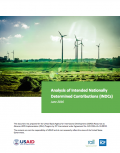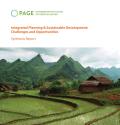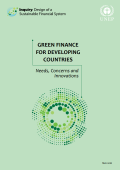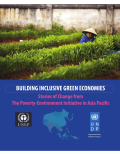
This white paper provides an analysis of the Intended Nationally Determined Contributions (INDCs) for 37 partner countries in the U.S. Government's Enhancing Capacity for Low Emission Development Strategies (EC-LEDS) program and other designated priority countries. The white paper includes an overview of global INDCs, country profiles for countries, regional trends, and sectoral trends. Moreover, each country profile includes information from the INDC on the:

Biomass combustion with traditional cookstoves causes substantial environmental and health harm. Nontraditional cookstove technologies can be efficacious in reducing this adverse impact, but they are adopted and used at puzzlingly low rates. This study analyzes the determinants of low demand for nontraditional cookstoves in rural Bangladesh by using both stated preference (from a nationally representative survey of rural women) and revealed preference (assessed by conducting a cluster-randomized trial of cookstove prices) approaches. The authors find consistent evidence across both analyses suggesting that the women in rural Bangladesh do not perceive indoor air pollution as a significant health hazard, prioritize other basic developmental needs over nontraditional cookstoves, and overwhelmingly rely on a free traditional cookstove technology and are therefore not willing to pay much for a new nontraditional cookstove.

Green finance is a strategy for financial sector and broader sustainable development that is relevant around the world. But the context differs considerably for different countries. Developing countries, notably those with underdeveloped financial systems, face particular challenges in financing national development priorities.
Broadly, concern and action to align financing to sustainable development is concentrated in three areas:

The UNDP-UNEP Poverty Environment Initiative (PEI) offers a unique way of tackling these issues together by offering policy options to governments on how sustainable use of natural resources can help reduce poverty and maintain economic growth. With strong support from six donors globally, PEI in Asia Pacific is working with nine countries to mainstream pro-poor natural resource management into economic policies and decision making to achieve more inclusive green economies.
